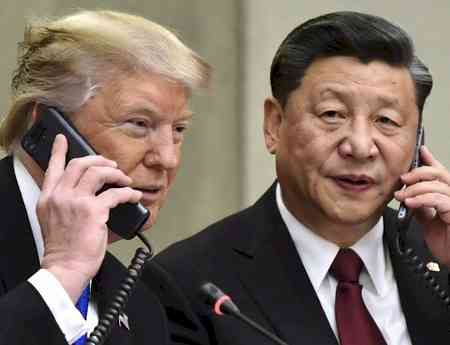Poor quality, frequent malfunctions undermine confidence in Chinese arms: Report
The reputation of Chinese military hardware and equipment has suffered a major dent due to several prominent export failures. Frequent issues with Pakistan's F-22P frigates, groundings and technical problems experienced by JF-17 customers, and recently reported operational difficulties with the Chinese SkyShield laser system in desert environments have been cited as the main reasons behind China's defence exports not gaining access to significant world markets, a report cited on Saturday.

Dhaka, Nov 1 (IANS) The reputation of Chinese military hardware and equipment has suffered a major dent due to several prominent export failures. Frequent issues with Pakistan's F-22P frigates, groundings and technical problems experienced by JF-17 customers, and recently reported operational difficulties with the Chinese SkyShield laser system in desert environments have been cited as the main reasons behind China's defence exports not gaining access to significant world markets, a report cited on Saturday.
Even though China remains one of the prominent military powers - it is the fourth largest defence exporter behind the US, Russia and France - questions are being raised about the credibility, quality and sustainment of its defence products, a report in Dhaka-based Lens Asia has highlighted.
"Root causes are multiple and interacting: China suffers from chronic corruption, as evident by President Xi's relentless purges targeting the PLA. Additionally, the uneven industrial base - gaps in precision components and advanced materials - maintenance/logistics shortfalls, procurement misconduct, and rush-to-show capabilities for political/propaganda are the reasons behind the falling quality of Chinese defence equipment. Analysts warn these factors could slow or complicate PLA modernisation," the report detailed.
It cites reports from regional defence press which document repeated sensor and radar defects and engine/propulsion problems on early Chinese-built F-22P frigates delivered to Pakistan. The problems, the report mentions, ranged from degraded radar performance under high-power transmission to engine overheating and crankshaft/lubrication issues that affected operational availability. These issues were raised publicly by Pakistani naval sources and defence analysts.
"The Chinese firm admitted that defective Gimbal Assembly motors were the cause of the fault, and these motors had not yet been repaired or replaced, jeopardising the ship's berthing operations. This situation has compelled the Pakistani Navy to operate the four frigates with compromised operational capabilities due to faulty critical components and inadequate service from Chinese manufacturers. As a result, some key mission objectives for which these expensive ships were acquired have been jeopardised," the report says.
Not only Pakistan, news outlets in Myanmar, Nigeria and other JF-17 customers have also documented groundings and structural/mission-computer malfunctions and vibration/airframe issues after export deliveries. This led to several countries grounding fleets after declaring the Chinese equipment unfit for operations. The report details that J-17's "poor accuracy and low weapon-carrying capacity" forced Nigeria to purchase the Italian M 346-FA fighter jets.
"Recent reports from defence blogs and mainstream outlets covered Saudi operational experience with China's SkyShield laser counter-drone system, highlighting significant performance degradation in harsh desert conditions and raising doubts about the system's reliability and maturity. These reports were operational/field based rather than manufacturer test claims and therefore, more reliable," the Lens Asia report stated.
"The SkyShield system was acquired to meet Saudi Arabia's specific geopolitical requirements. It was anticipated to offer a cost-effective solution by integrating electronic warfare capabilities with directed-energy weapons. However, its failure in the real-world conditions, casted deeper doubts on the credibility of the controlled testing and the quality of the product," it added.
The report reveals that a numerous export customers and analysts have publicly complained about frequent malfunctions, poor spare-parts availability and weak after-sales support, which together undermine confidence in Chinese arms sales and have slowed some export trajectories.
"These complaints gain further traction when PLA media, itself, empahsises the need to treat equipment quality as life-or-death for soldiers and to strengthen weapons’ whole-life management, implicitly acknowledging prior shortcomings in testing," it stated.
--IANS
/as



 IANS
IANS 










